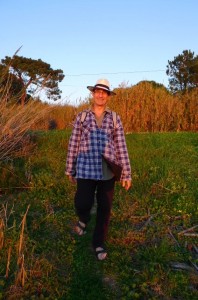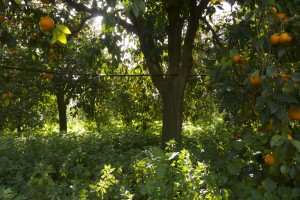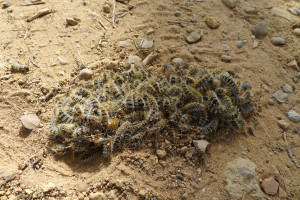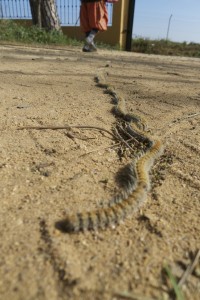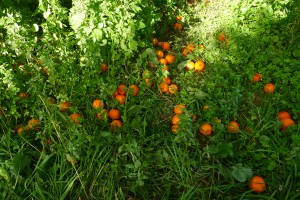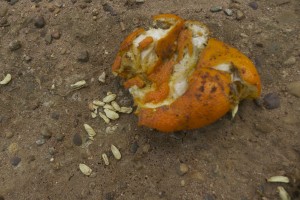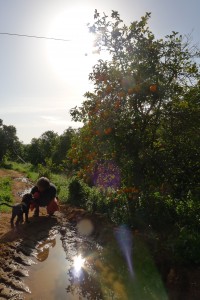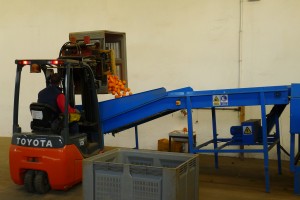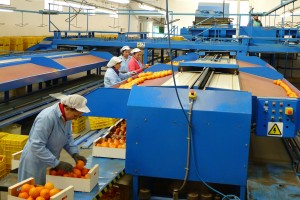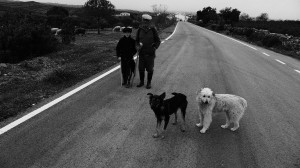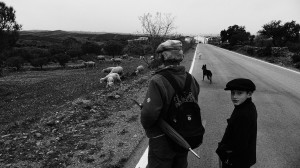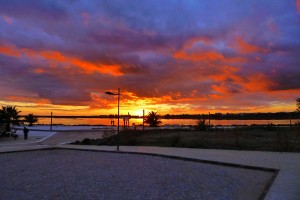Work
I feel so blessed to have work that I love so passionately.
Working at the TangoLab in Proitze…. giving 40 hours of private lessons and 10 hours of group classes in six days, and I feel full of energy. Waking up early, giving a lesson at 9am in a beautiful hall to the music I love so much, with the sun shining through the window and my student letting me share in their learning process.
Some of the lessons are abundant with laughter and experimentation, others are deep as a still lake as we go more and more into finer details of movement. Some are full of tears and grief, flowing out of every movement, every touch. Some students come with a work plan for their lessons, others want to just dance and see what happens. Everyone is there 100%, and I give a 100% of myself.
I love the alchemy of this. Everybody grows in the process, becomes a different person.
********
Coming home to Frank and our Emma in Andalucia, I see that Frank hasn’t been idle either: all walls and ceilings of the mobile home have been sanded down and treated with teak oil! For six months we have been meaning to do this, but it took my going away to get it done 😉
We also have two new beautiful wooden storage boxes doubling up as benches to sit in front of the fire, and a drawer underneath the oven to house all our cooking utensils, which up to now lived in a jumble in a yellow bucket. Last but not least, the surface of our lovely G-Plan table which Frank got from the tip in Cardiff, has also been sanded down and oiled. Everything looks beautiful – what a lovely surprise to come back to!
Now all we need is the parts for the clutch to arrive, and then we’ll be able to drive out of the garage we are parked up in – like a butterfly coming out of its cocoon – and begin the second half of our honeymoon.
Posted in Uncategorizedwith 1 comment.
Happy Valentine my lovely man
The sky here in Berlin is the same blue that we had in Malaga yesterday when you dropped me off at the airport, though its about 15 degrees colder. I think of you opening the door to the beautiful vista of the hills just north of Malaga, taking in the scent of the almond blossom and the sound of the birds down in the valley.
Six months have passed since our wild and wonderful wedding ceremony in Coed Hills in Wales, and we are now half way through our year of driving through Europe. Having taken the ferry to Spain and traveled through northern Spain, we then went to Portugal and now we are in Malaga. We haven’t got very far one could say, as we have only driven 3000 km, but we’ve gone deep. We’ve seen places and met people in a way that has touched us to the centre.
Most of all, we have traveled deep with each other.
It’s been an intense 6 months, practically living in each others arms. But far from getting fed up with each other, every day seems a gift, every day, I feel blessed to have you in my life to share so many things with each other. Thank you for the laughter you bring to my life, and the sense of exploration. For the dances we share and the fantastic food you cook. Thank you for your support and closeness at times when I feel vulnerable or ill. For the care you put into everything you do and the warmth that radiates from everything you touch. You are the most wonderful man I could have wished for as my husband!
Posted in Uncategorizedwith 1 comment.
Ave Maria
It’s getting close to the time when I will fly from Malaga to Berlin, to teach for a week at the TangoLab in Proitze. So after my Tango workshop in Huelva on Tuesday night, we drive on to just beyond Sevilla, where we stop for what’s left of the night. The next morning, we are in search of Ave Maria, the Organic Orange farm that supplies the Fruit Bowl, Frank’s local grocer in Cardiff, with organic Seville Oranges, which Frank always uses to make his marmalade. But first we take a stroll through the little town, to buy some bread and enquire about the location of the farm.
The vernacular is so different from the blue-white houses of Portugal. Everything seems a lot grander, and all the windows have heavy, wrought-iron bars on them, on all floors, and there are pillars to protect the tops of the roofs. Bulls could safely run through this town without being able to break any windows, that’s for sure. We wonder what the need for such security is, when not far away in Portugal, the houses don’t have any fortification at all. I see a woman behind bars cleaning the open window, so I cross the road to ask her this question. Before I can even open my mouth, she turns me away, making a fly-swatting gesture with her hand. For a second, it works and I stay on the other side of the road. But then I don’t want her to get away with this; it seems such a prejudiced gesture. So I cross again, gently speaking to her, saying in my best Spanish that I didn’t want to sell her anything, just wanted to ask a question. She grudgingly allows me a question, so I ask why the bars, what’s the need for such security. She looks at me as if I was stupid and says so that thieves can’t get in. I ask if there was such a high criminality here in Spain, compared to Portugal where the houses had unfettered windows. She is a bit non-plussed and can’t really answer this, other than saying that there is no criminality in this town.
She remains very uncomfortable with me talking to her, despite the fact that I am several meters away from her and that there is a set of iron bars between us. I didn’t know I was so dangerous! Maybe I look a bit like a Gypsy, and judging by the defensive stance of the Gypsies we met some weeks ago, there seems to be an entrenched hatred of travelling folk amongst the Spanish…
It’s still early in the morning and the tourist information point isn’t really open yet, but nevertheless, three helpful women give us plenty of information, researching the whereabouts of the organic farm online and plying us with several maps to find them, as well as pointing out a bakery which, according to them, has fantastic bread. It turns out it’s the cardboard variety, but has been baked in a wood fired oven… I eat far too much of it in one go, and I pay for it with a hammering headache the following day. I should know better, but there we go, sometimes we have to be painfully reminded of what’s good for us and what isn’t.
We find the farm and receive a very friendly welcome from Amadora who runs the farm. Having driven through miles and miles of mono-cultured orange groves that have absolutely nothing growing under the trees, seeing the groves of Ave Maria is pure delight. Happy trees with happy undergrowth, and the air is humming with insects and twittering with birds.
We see some pretty serious caterpillar action too – they have fallen off a pine tree in a heap, pulsating rhythmically until they work out which way they want to go, at which point, they march off in single file!
Amadora invites us to feel at home on the farm and to go and explore the orange groves. We find out that the rejects from the sorting belt go back underneath the trees to return the nutrients to the earth.
We see some oranges that obviously have been pecked, not for their flesh but for their pips:
Two lovely Labrador puppies follow us on our way through the farm
We bring a jar of marmalade and a jar of medlar jam to Amadora, who reciprocates with a jar of their marmalade and a booklet about their farm. When we open the booklet we find a very moving letter from her mother to English marmalade makers, expressing her gratitude for the continued interest the English have for bitter oranges, which enable her family to live in this place and put their passion into growing the very best Seville oranges.
This farm delivers to many places in the UK, amongst them Waitrose and Riverford Farm!
So if you’ve had an orange in your Riverford veggie-box this week, we may have seen it rolling along the conveyor belt, plopping into the hands of one of the six hardworking women who select the best and return the rest to the trees. Imagine we’ve snuck a little sticker on it, saying, hello Wendy, hello Emily, Natalie, Max, Leah, Mel, Leo, Rolf and Maria, hello unborn child. We love you, we miss you, we send you sunny greetings from the south of Spain!
****
Here is Ave Maria’s web site
Posted in Uncategorizedwith comments disabled.
Culatra Island
When looking for the library in Olhaõ, Frank asked someone in his best Portuguese for directions, to get the answer I don’t know, mate, I don’t live here I only work here. This is how we met Captain Steve. As his name says, he loves the sea and has made it his business to show the beauty of the sea and landscape to foreign visitors, be it by boat, kayak, cycling trips or tours with the minibus into the interior.
Steve’s boat ‘Seta’ is a traditional wooden Portuguese boat, and a joy to travel in. We go on a trip to Culatra Island with him, where the traditional fishing village seems to have stopped development about 40 years ago. One can only buy a house on Culatra if one is involved with the marine industry, so there are no concessions to tourists here. No hotels, no holiday homes. The island has no cars, and after a hearty lunch with freshly grilled fish, we take a stroll in the sun, along the sandy paths that run between the fisherman’s houses. There is a really special atmosphere here – the absence of cars, the dryness (it only rains 4 days in the year here, according to the captain), the sandy roads, and everywhere there are people. It’s a busy village. The 4pm ferry spills out a few dozen teenagers on their way back home from school on the main land.
Steve knows many of the islanders, and they give him a friendly welcome wherever he goes in the village, which allows him to show us places that we would otherwise not have found ourselves.
He takes particular delight in showing us a washing line full of drying fish and introducing us to 92 year-old Maria, one of the oldest inhabitants of the island.
From spring onwards, Steve says, this trip offers a lot more in terms of marine wildlife and other fauna and flora, and trips start to include swimming and snorkeling in the crystal-clear waters of the lagoon, set as it is within the National Park of the Ria Formosa.
Around 4pm, we get back on his boat and putter back to Olhaõ, having had a fantastic, international day with a small group of French, Dutch and English tourists, made all the richer by Captain Steve’s informative and entertaining stories as we went along.
*****
There is a nice set of photos about the island here
Link to Captain Steve’s web site ktalgarve.com
Posted in Uncategorizedwith comments disabled.
Crocs
In the caravan park in Olhaõ, we meet Mike and Joan, fellow travellers from Wales, who have a ‘Fifth Wheel’ caravan that hooks onto their 4×4. This caravan, built in Wales, has an extendable side, thus substantially widening the living space inside. Mike and Joan are very friendly, and before leaving, they invite us to come and visit them on their land near Alcoutim.
It is only after they have turned the corner that we see an orphaned pair of Crocs lying on the patch where their caravan stood….so after a few days, the Crocs lead us to a tiny village high up in the northern hills of the Algarve. We enjoy the beauty of the landscape, the very picturesque little towns of Mertola and Alcoutim, and the genuine and very friendly company of Mike and Joan, who take us to Martim Longo for their weekly swim and share not only Mike’s great beanstew but also the next day his fantastic Paella, to which we contributed two of our ‘signature salads’.
In the village, we stock up with local honey from 90 year old Maria and meet the old Shepherd and his ‘student’ Hugo.
We also meet Carla, who drives around in her van selling her own goats cheeses and high quality sausages and other meats.
Carla is keen for us to meet her daughter and converse with her, to help her with her spoken English, so we arrange to meet in the afternoon to take her daughter on a ‘language stroll’ around the village. Her daughter, Emilia, on the one hand interested to meet us, is also quite worried about what her peers might think about her walking around the village with strange looking foreigners. I think she is courageous to spend time with us – she is a shy 14 year old, but she overcomes her shyness (or maybe her mother pushed her sufficiently) and we have some fun time asking questions, miming answers, or looking up words in the dictionary as we find out about her village and her life here.
Carla invites us to come to her house for dinner, and we meet the rest of the family. Both Carla and her husband Manuel studied agro-engineering, but her husband prefers to work with his hands, working in the fields, going hunting, and also making beautiful wood carvings for his family – anything from lamp shades to jewellery. Seeing his work, we are very much reminded of Pepe. Manuel says ‘I like working, and I love the work I do’. Both he and Carla radiate passion for what they are doing, and so does their 21 year old son who is sports mad. Carla feels passionate about her children. She wants them to experience the wider world, and this is why she wanted them to meet us, to broaden their minds, to meet people from another culture, another way of living. She is very open to us, inviting us into her beautiful large house on top of the highest hill in the region, not holding back at all. Yet it’s not an indiscriminate openness – her house has a heavy bar-lock to keep out burglars, and the dogs are the kind one wouldn’t want to meet without their owner being around to control them.
The next day, Carla comes to meet us once more, and this time, she speaks about her dreams, her ambitions, her toils and troubles running about 5 full time jobs at once. She also talks about the state of this region and how difficult it is to make people realize they need to care for the environment, not use indiscriminate amounts of fertilisers and pesticides. Then the conversation turns to how her mother fought for her daughters to be allowed to go to University against their father’s will, and that it was only possible once the father had died (when her older sister was 18). Her brothers had no interest in studies, but the two sisters struck out, one becoming a lawyer and the other an engineer. She talks about how there is no equality between men and women here, and that it is a fight to fulfill one’s dreams as a woman; having to balance a career with raising children, making and selling home produce to supplement income, running a household, looking after parents, etc. She is a very busy and very strong woman, with a lot of passionate ideas and the drive to make many of them come true. And she dreams of one day being able to let go of some of them too, to go travelling like we do, to breathe out and to slow down…
When we part, we all have tears in our eyes – we feel we have touched each other’s lives at the heart.
Posted in Uncategorizedwith comments disabled.
A trip into the Interior
From Huelva, we loop our way up north one hour and back into Portugal. The difference between the countries is striking: On the Portuguese side, lots of nooks and crannies, many smallholdings; beehives made from large chunks of cork oak bark, a few sheep here and there, some olive trees, some oranges, mandarins, clementines, lemons, figs and many almond trees, all intermixed and dotted about the landscape.Every tree looks different from the next and some have both oranges and lemons on one tree.
On the Spanish side we come across large industrial buildings and endless monocultures of oranges; rows upon rows, fields upon fields of the same type and size. If there is a building every now and then, it’s a big metal barn with a name like ‘YourFruit’, indicating multinational business. This is the stuff that reaches the shelves of our big supermarkets in tetra packs, I guess….After a while, the land slowly changes to scrub- land for as far as they eye can see. The land looks very tired, worn out – has this been a monoculture area before, now discarded, bereft of any nutrients? Not even weeds grow here anymore. We drive through miles and miles of it, stunned into shocked silence.
In a little town in the middle of nowhere, we stop for fuel. On the other side of the road are half a dozen scraggy horses, and a couple of tarpaulins pitched over some hay bales housing a large family of gypsies. Frank, always eager to make contact, would like to meet them. I’m a little more cautious, having had some fairly sharp interactions with Gypsies before. Anyway, we have a few things that we don’t need, namely cooking utensils from the previous owner of our mobile home, and armed with those plus some home made jam, we approach the group.
Despite me going about 20 paces ahead of Frank, smiling and holding out our gifts, the gypsies first tell us to go away. Then they ask what do we want. When we assure them that we don’t want anything but have some things they might like, they are a little more friendly but still very suspicious. Our gifts are taken and scrutinised, the jam opened and sniffed. Then the tone changes and they want money from us. The children start crying as if on command, and stories of starvation and poverty hail down on us in Spanish, combined with a slightly threatening stance from the two teenage sons who obviously are here to protect the ‘tribe’ while the elders are away working. Within a minute, the tone gets quite aggressive, and we turn to leave, half expecting the boys to throw the jam after us. We are left to go in peace though, thank god. It leaves us a bit shaken, and we continue on our journey, only relaxing once we have crossed back into Portugal.
I wonder afterwards how many taboos we’d crossed by approaching them in this way, without introduction from one of their people, on their territory, and while the men were away.
Posted in Uncategorizedwith comments disabled.
Our ‘Home” in Faro
We almost grew roots in the car park by the fish restaurant behind the theatre in Faro. You are right by the mud flats and the salt basins, you see incredible birds there (the stork pictures were taken there), and stunning sunsets.
There is a constantly changing community of campers. One day, our neighbours were a Swiss-French family with four delightful girls. All the girls’ names begin with ‘A’ and they do everything in a group. They have three hours of schooling every morning, but in the break times, they are let out to play. Sunday is a day off. So one Sunday morning, the girls had picked a lovely bunch of flowers for us and we invited them in to see my bandoneon. Everyone had a go.
The weather is great, just like a hot summer’s day in the UK! One particularly sunny day, we put out the dance floor and I dance with and give a lesson to a lovely tangodancing fellow traveller from Belgium/Germany.
We befriend the people from the fish restaurant and exchange meals for massages, which lead to further clients. The longer we stay in one place, the busier Frank gets as the news about his magic hands travels…
****
Check out the pictures on flikr of the ‘bouquet’ of french-swiss girls, stunning sunsets and our friends from the fish restaurant!
Posted in Uncategorizedwith 1 comment.
